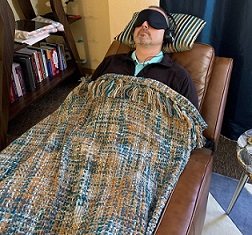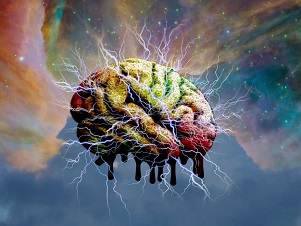
INDIVIDUAL THERAPY
The goals in individual counseling will be determined by the counselor and the client as a team. Commonly named goals of counseling:

- Facilitating behavior change.
- Improving the client’s ability to establish and maintain relationships.
- Enhancing the client’s effectiveness and ability to cope.
- Promoting the decision-making process and facilitating client potential.
- Development.
- Enhancing coping skills.
These goals are not mutually exclusive and will naturally change as we work with the client to facilitate lasting change.
COUPLES THERAPY
If your relationship is stuck, or simply, not thriving the way you had hoped, a couple’s therapist can help. I encourage couples to be proactive about seeing a Marriage or Couples therapist rather than let the idea sit on the back burner. No relationship is perfect and most couples will benefit from a marriage counselor’s help. Below, I have identified several common concerns and issues that result in struggles for partners.

- Communications are problematic: Often partners feel misunderstood or ignored. Communication can be overt or covert, and one or the other may need attention.
- A significant setback: Extended job loss, a major health crisis, the loss of a child, a major life transition are all examples of significant setbacks. Not only does the event itself hurt, but the devastating setback also impacts the relationship. You may find that you’re not connecting with each other. Your bond may be compromised and the communication has deteriorated.
- Trust has been broken: Help is sometimes necessary to overcome a major breach of trust. Deception, lies, infidelity work to erode the relationship.
- Arguments become increasingly frequent: Conflict happens more and more resulting in increased hurt and frustration.
- Difficult topics: Perhaps shame, fear, or lack of support keep you from discussing topics that are keeping you stuck.
- Emotional intimacy or physical intimacy is lacking or gone: It is not uncommon for two partners to feel like the "flame" has died. After spending years together, some couple relate like roommates versus lovers or soul mates.
We'll develop communication skills to help you better understand each other. Emotional connection improves as validation and understanding of one another increases in the relationship.
We will work to keep your bond strong, re-uniting you as a couple to make it through the difficult times ahead.
Rebuilding trust is possible. Working on being fully honest and emotionally vulnerable, we will rebuild the foundation for a strong relationship.
Let’s change this risky trajectory and break the pattern of constant arguing. We will address the root issues that are not being dealt with currently.
Therapy starts with the room itself: It can become a safe and supportive place to bring up things that are difficult to talk about in other settings. As a trained professional, I’ll guild you through sharing with your partner.
We explore the issue to determine if it is the grind of daily life has diminished the ability to connect, a matter of re-prioritizing, or perhaps an issues more insidious. A skilled therapist will help partners who have grown apart, changed in seemingly incompatible ways, or have stepped outside of the relationship to get various needs met elsewhere.
Whatever the issue, a qualified therapist can help you through difficult times by providing the tools and insight to help you transform your troubled couple-ship.
SEX ADDICTION
The struggle with sex addiction is very personal. Often, that struggle is both painful and isolating. Sexual addiction is indicated when someone repeatedly experiences reduced control over sexual behavior(s) despite negative or harmful consequences. Examples of these consequences include: arguments with a partner over excessive pornography use; losing a job because of inappropriate sexual behavior in the workplace; and health, legal, and financial problems.

Sexual addiction manifests as a preoccupation with sexual thoughts or sexual behavior to the extent that this preoccupation continues even though it causes substantial harm. This harm may include: 1) risky, dangerous, or unhealthy sexual behaviors; 2) damage to interpersonal relationships and/or the avoidance of meaningful intimate relationships; 3) financial consequences; 4) legal consequences, or, 5) a failure to fulfill important life roles such as employee, student, spouse, parent, friend, etc.
We will explore the issue with a specialized sex therapist so that the pre occupation of sexual thoughts or behavior can be brought up in a safe and supportive place.
ANXIETY & MOOD DISORDERS
Depression and anxiety are both complex in terms of manifestations and their experience. Panic and Social Anxiety, Post-traumatic Stress Disorder, Generalized Anxiety, and Depression all contribute to emotional pain and may result in attempts at escaping or avoiding important aspects of daily living.

The therapists at The Oracle Institute understands that living with any of these issues, or a combination of them, may cause significant suffering for individuals and for their families. A joy for life may be muted, exhaustion is common, and a lack of in personal interest in relationships, food, or sex, is not unusual.
We educate clients of the role of avoidance and unhealthy escape. Techniques such as Mindfulness and Dialectical Behavior Therapy are utilized in treatment to help increase distress tolerance. Experiential, equine and talk therapies are also used to promote health and wellness.
AFFAIR RECOVERY, BETRAYAL TRAUMA & PARTNERS OF SEX ADDICTS
Betrayal Trauma Recovery is a journey. After discovering a loved one has sexually acted out, partners often experience a tremendous array of feelings including shame, hurt, and anger. The discovery of physical and/or emotional affairs, pornography use, prostitution is not unique, and yet it is frequently very traumatic. These partners experienced being victims of lies, gaslighting, and manipulation. As a result, they frequently struggle without real support. Too often, partners are labeled codependent and blamed for the abuse and infidelity.

A CSAT (Certified Sex Addiction Therapist) understands how to support couples and individuals impacted by betrayal and sex addiction. At The Oracle Institute, we put emotional, physical, and sexual safety first by helping partners set healthy boundaries. The healing journey continues with individual therapy to help process betrayal trauma. Our approach to recovery encourages partners seeking 12 step-support, in addition to systemic or family of origin introspection. Our staff can set up the facilitation of a formal disclosure process as well as guide clients through emotional restitution.
If your partner has betrayed your intimate trust, The Oracle Institute is here to help you recover and mend your shattered heart.
EYE MOVEMENT DESENSITIZATION AND REPROCESSING
Eye Movement Desensitization and Reprocessing (EMDR) is a psychotherapy that enables people to heal from the symptoms and emotional distress that are the result of disturbing life experiences. Repeated studies show that by using EMDR therapy people can experience the benefits of psychotherapy that once took years to make a difference. It is widely assumed that severe emotional pain requires a long time to heal. EMDR therapy shows that the mind can in fact heal from psychological trauma much as the body recovers from physical trauma. When you cut your hand, your body works to close the wound. If a foreign object or repeated injury irritates the wound, it festers and causes pain. Once the block is removed, healing resumes.

EMDR therapy demonstrates that a similar sequence of events occurs with mental processes. The brain’s information processing system naturally moves toward mental health. If the system is blocked or imbalanced by the impact of a disturbing event, the emotional wound festers and can cause intense suffering. Once the block is removed, healing resumes. Using the detailed protocols and procedures learned in EMDR therapy training sessions, clinicians help clients activate their natural healing processes.
An eight phase treatment approach, EMDR therapy combines different elements to maximize treatment effects. EMDR therapy involves attention to three time periods: the past, present, and future. Focus is given to past disturbing memories and related events. Also, it is given to current situations that cause distress, and to developing the skills and attitudes needed for positive future actions.
FAMILY THERAPY
Family Therapy is a kind of Psychotherapy that can help family members deal with a member of the family who is problematic or one who is struggling with mental or health issues. It is also advised that families who are experiencing increased conflict and poor communication should take part in family therapy.

For the best family therapy outcomes, it is recommended that a certified and trained professional conduct the counseling sessions. Every qualified Marriage and Family Therapist is required to facilitate family therapy as a precursor to their accreditation. Family therapists have specialized skills and experience in handling family-related issues. In general, all therapists should have experience in treating marital conflicts, depression, anxiety, substance abuse, and behavioral problems. Licensed MFTs have specialist training to understand and work with family systems.
Family therapy is one of the most prevalent and common forms of psychotherapy. It helps reduce conflict by strengthening and enhancing the way in which family members interact and communicate with each other.
Additional reasons people seek family therapy:
- A child is has problems adjusting to certain areas of their life (such as poor grades, substance abuse, insomnia, poor sleeping and eating habits, perfectionism, social issues, etc.)
- Parental conflict
- A major change that affects every member of the family (such as deployments, relocation to a new city, a family member going to jail, etc.)
- Dealing with an unexpected death or loss in the family
- Adjusting to the presence of an entirely new family member in the home (such as the birth of a new sibling, the decision to adopt foster children, blended families, the permanent infusion of a grandparent in the home, etc.)
- Domestic violence
- Divorce or separation
At the Oracle Institute we aim at helping families deal with issues that may be causing conflict or disagreements amongst family members- such as Substance Abuse. Unlike individual counselling, family therapy requires that all members of the family participate. As a counselling technique, family therapy views issues as system that needs fixing, as opposed to individual counselling, which views problems as pertaining to an individual.
In family therapy, the word ‘family” is used to define anyone who plays an active and long-term supportive role in the life of another person, and this doesn’t necessarily have to involve any blood relations or family members.
Counselors understand that family therapy is important for a family that is struggling to be functional as a unit, regardless of whether some or all family members get counselling.
CHEMICAL ADDICTION
Individual counseling for substance abuse focuses on reducing or stopping substance use, skill building, adherence to a recovery plan, and social, family, and professional/educational outcomes. Group counseling is often used in addition to individual counseling to provide social reinforcement for pursuit of recovery.

Counselors provide a variety of services to people in treatment for substance use disorders including assessment, treatment planning, and counseling. Some common therapies include:
- Cognitive-behavioral therapy teaches individuals in treatment to recognize and stop negative patterns of thinking and behavior. For instance, cognitive-behavioral therapy might help a person be aware of the stressors, situations, and feelings that lead to substance use so that the person can avoid them or act differently when they occur.
- Contingency management is designed to provide incentives to reinforce positive behaviors, such as remaining abstinent from substance use.
- Motivational enhancement therapy helps people with substance use disorders to build motivation and commit to specific plans to engage in treatment and seek recovery. It is often used early in the process to engage people in treatment.
- 12-step facilitation therapy seeks to guide and support engagement in 12-step programs such as Alcoholics Anonymous or Narcotics Anonymous.
Additional forms of counseling are tailored to specific clients. Treatments often involve a family component. EMDR, SE and equine therapy are other modalities that are frequently incorporated in comprehensive treatment plans.
EQUINE THERAPY
Animals are often therapeutic to humans. Equines, horses, mules, and donkeys are very intuitive and empathetic animals that make excellent teachers. Equine animals help us tap into our collective unconscious with grace, power, spirituality, beauty, and strength. What are you willing to learn from these wise creatures?

Donkeys, like all animals, live in the moment. This means that they live each moment as it comes. They can’t go about ruminating on the past nor do they worrying about the future. Living in the moment is more of a challenge for us humans and it takes a lot of practice. When working with donkeys, grooming, driving, or simply hanging out with them, we have the opportunity to practice being in the moment. Because if your mind wanders, the donkeys also tend to wander off, uninterested. This is why it is difficult to think about past trauma or future troubles when you are with a therapy donkey.
Equines act like “mirrors” to us -- reflecting back and reacting to our inner feelings, despite what we may show on the outside. That is why you can’t hide your feelings from a therapy horse or donkey. These animals act congruently -- their inner feelings and desires line up with how they act in that moment. Humans, however, have often learned to act one way while feeling another. This may be helpful to us human in some situations while not so much in others. In this way, equine animals can help us develop our own emotional intelligence!
What is the Eagala Model? from Eagala on Vimeo.
TRAUMA & POST TRAUMATIC STRESS DISORDER RECOVERY (PTSD)
Trauma occurs when the body’s nervous system suffers an overwhelming response to a stressful event. Trauma affects one’s physical, emotional, and mental well-being and can manifest symptoms in a variety of ways:

- Avoiding situations, people, places
- Chronic Pain
- Depression
- Decreased concentration
- Digestive Issues
- Difficulty trusting others and forming healthy relationships
- Easily startled, always feeling like you are on alert
- Fears and phobias
- Feeling completely shut down or numb – like you are just walking through life
- Feeling unsafe in the world
- Feelings of shame, despair, hopelessness
- Fibromyalgia
- Flashbacks
- Generalized anxiety
- Hypervigilance and mistrust
- Insomnia, night terrors
- Intrusive memories
- Isolation
- Lost sense of self
- Missing parts of the day; memory lapses
- Mood swings
- Numbing
- Obsessive Behaviors
- Overreactions to minor stressors
- Panic attacks
- Reacting to situations for reasons that you don’t know
- Restlessness
- Self-destructive behaviors
- Unable to leave your house
What exactly is trauma and why do traumatic incidences can have such long lasting and devastating effects on one’s life? Trauma is an experience that leaves one with significant negative emotions resulting in a negative belief about yourself. Trauma changes the way we feel about ourselves, our beliefs, and our perspective on the world.
What makes traumatic memories so tricky is that they are stored differently than other memories. Most of the time, our body manages new information without being aware of it. However, when something traumatic occurs, our natural coping mechanism can be overloaded. This may be from a overwhelming event (such as a natural disaster or a car accident) or from repeated distress (such as childhood neglect or repeated emotional abuse). These events are so surprising and unnatural that our prefrontal cortex falls offline, and we are not able to cognitively process through them.
This overloading can result in disturbing experiences remaining frozen in our brain (unprocessed). In turn, these unprocessed memories and feelings are stored in the limbic system, of your brain, in a “raw” and emotional form, rather than in a verbal “story” form.
When these memories are stored in the raw, emotional form, it is more difficult to think about them in a cognitive, rational manner. In turn, we fill in the blanks and form irrational beliefs about ourselves or the world that became associated with that memory.
Often, the memory itself is long forgotten, but the painful feelings such as anxiety, panic, anger or despair are continually triggered in the present. Our ability to live in the present, have healthy relationships, and learn from new experiences can therefore be inhibited. We want to be able to address these traumatic incidences and reprocess through them so that we are able to feel fully and think rationally.
There are several ways that trauma is addressed and healed. At The Oracle Institute, we use a variety of approaches: shame resiliency, post traumatic growth techniques, equine therapy, experiential modalities.
CHILDREN & TEEN THERAPY
Humans inevitably run into difficulties in the process of growing up. Most of us do not completely achieve all of our developmental tasks within a lifetime. All of the unique expectations and requirements imposed on us by others will eventually lead to problems.

Any inconsistencies in development can result in children learning behavior patterns that are both inefficient and ineffective. Play therapy, talk therapy , equine therapy and experiential and systemic therapy are modalities used at The Oracle Institute to promote healthy self-esteem and positive coping skills. The family system is often included in the therapy process. Extended therapy sessions are frequently utilized.
CO-OCCURRING DISORDERS
Addiction, Panic and Social Anxiety, Post-traumatic Stress Disorder, Generalized Anxiety, and Depression all contribute to emotional pain and may result in attempts at escaping or avoiding important aspects of daily living. All of these issues can be complex in terms of manifestations and their experience.

The therapists at The Oracle Institute understands that living with a combination of these issues, frequently causes significant suffering for individuals and for their families. We educate clients (and families) of the role of addiction, avoidance and unhealthy escape. We encourage 12 Step groups and individual therapy. Techniques such as Mindfulness and Dialectical Behavior Therapy are utilized in treatment to help increase distress tolerance. Experiential, equine, family and talk therapies are also used to promote health and wellness.
BUSINESS COACHING
How can Business Coaching help me as a new owner and entrepreneur?
Business coaching allows you to work with experienced entrepreneurs and business owners to assist you in recognizing your talents for building and growing your business; to help you reach your goals.

While there’s plenty of information and advice available online on how to start and grow a business, all of it is, by nature, generic and not specific to your unique business. Business coaches, on the other hand, are able to provide something far more valuable – personalized, custom advice.
If a person wants to learn how to play an instrument, it’s much easier to find a teacher than it is to teach themselves. Likewise, if an athlete wants to improve their skills, the best thing they can do is join a team that has a great coach.
We apply this logic – the fact that great coaches and mentors are the quickest routes to success – to most every pursuit, yet the same logic is often overlooked when it comes to growing a business. We, as business coaches are expert entrepreneurs who know what it takes to make a business successful.
If a business owner has tough questions or runs into problems along the way, their coach will be able to help them navigate their issues in the most effective way possible. Having a business coach is much like having a highly experienced partner on your team, and the value that they offer to business owners is priceless.
KETAMINE ASSISTED PSYCHOTHERAPY (KAP)

Currently, ketamine is the only legal psychedelic medicine available to mental health providers for the treatment of emotional suffering. Over the past several years, ketamine has come into psychiatric use as an intervention for treatment resistant depression (TRD) and PTSD. We believe ketamine can benefit patients with a wide variety of diagnoses when administered with psychotherapy and using its psychedelic properties without need for intravenous (IV) access. Its proven safety over decades of use makes it ideal for office and supervised use. The unique experience that ketamine facilitates with its biological, experiential, and psychological impacts has been tailored to optimize office-based treatment evolving into a method that we call Ketamine Assisted Psychotherapy (KAP). KAP is an effective method for decreasing depression and anxiety in a private practice setting, especially for older patients and those with severe symptom burden.
PSYCHEDELIC-ASSISTED PSYCHOTHERAPY SERVICES
Psychedelic Integration Services provide support and guidance to those in need of processing and meaning making of past psychedelic experiences. We offer a safe space for clients to process, gain new insights and assimilate the information received from a psychedelic journey. Meaning making sessions may focus on a client’s conception of self, relationships, spirituality, and worldview.

Psychedelics such as psilocybin (magic mushrooms), MDMA (ecstasy or molly), LSD (acid), ayahuasca/DMT, Ketamine, and other substances, can produce altered states of consciousness which can be profound and also confusing . Psychedelics may offer transformative growth and healing, however, the experiences of an altered states of consciousness or non-ordinary states of consciousness can also be challenging to navigate alone. Some experiences result in trauma memories surfacing . A "bad trip" or perceived negative experience may require additional integration work and compassionate process support.
Psychedelic Integration Services are currently available to clients who have experienced the effects of psychedelics outside of a clinical setting. The Oracle Institute and Journey Center can assist clients with integrating their psychedelic journey experiences in a non-judgmental space.
Clients will be paired to work with Kiki King. She is a mental health therapist and integration specialist experienced in working with psychedelic medicines. In 2021 she received training through MAPS (Multidisciplinary Association for Psychedelic Studies)in as well as through Psychedelics Today. She also has been trained in Ketamine Assisted Psychotherapy.
NOTE: Though we are seeing efforts to decriminalize them, psychedelics are currently illegal and are not being used in psychotherapy outside of clinical trials.
